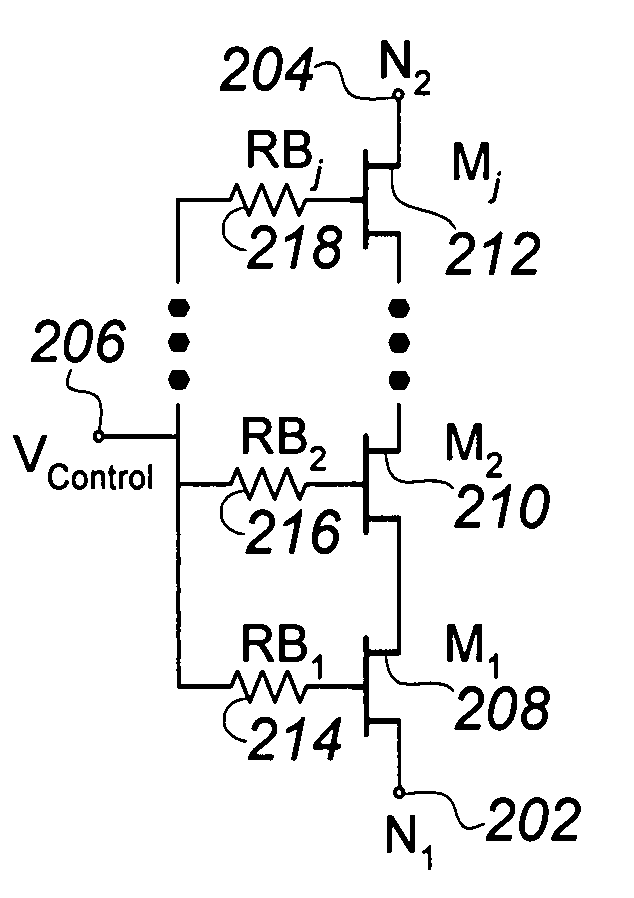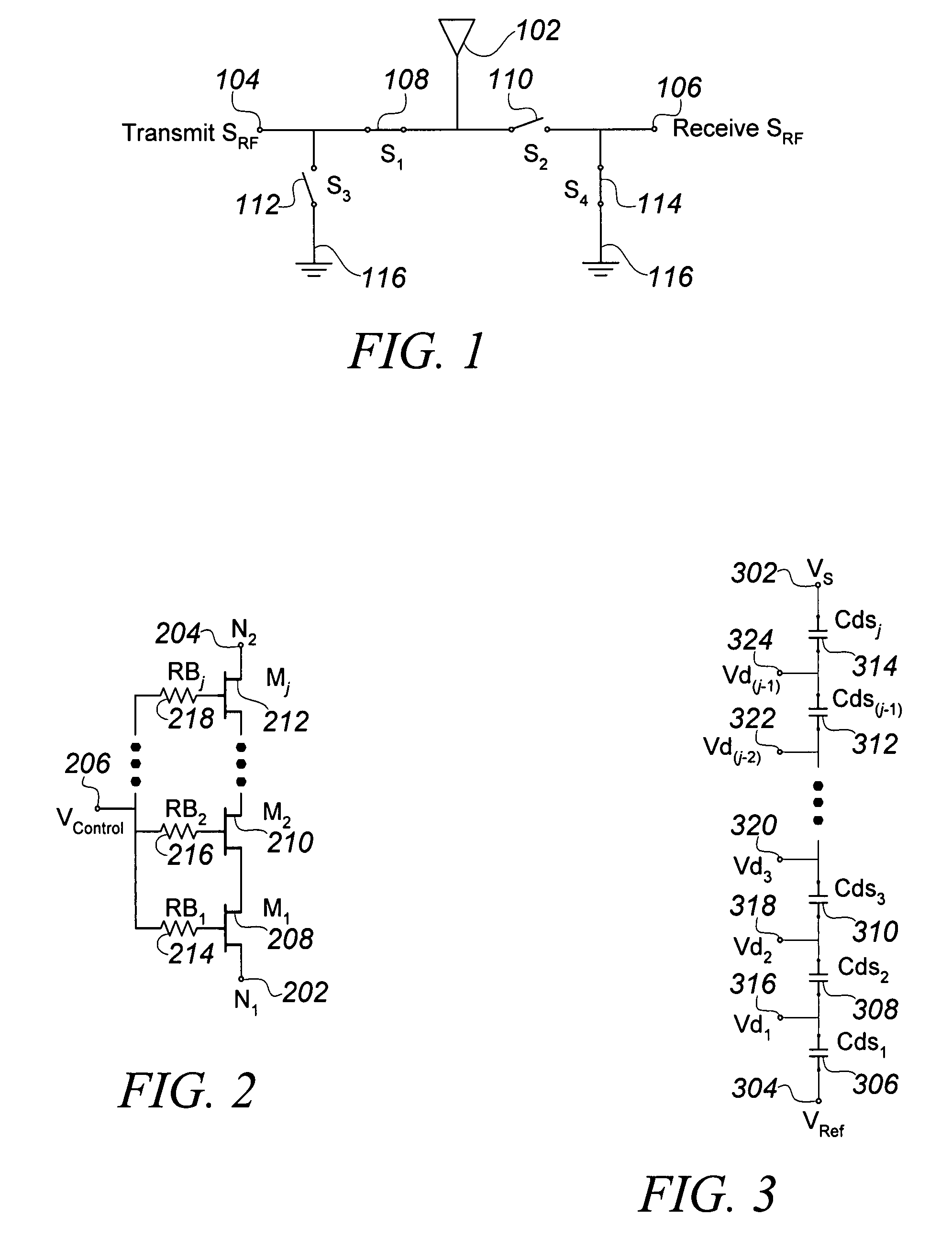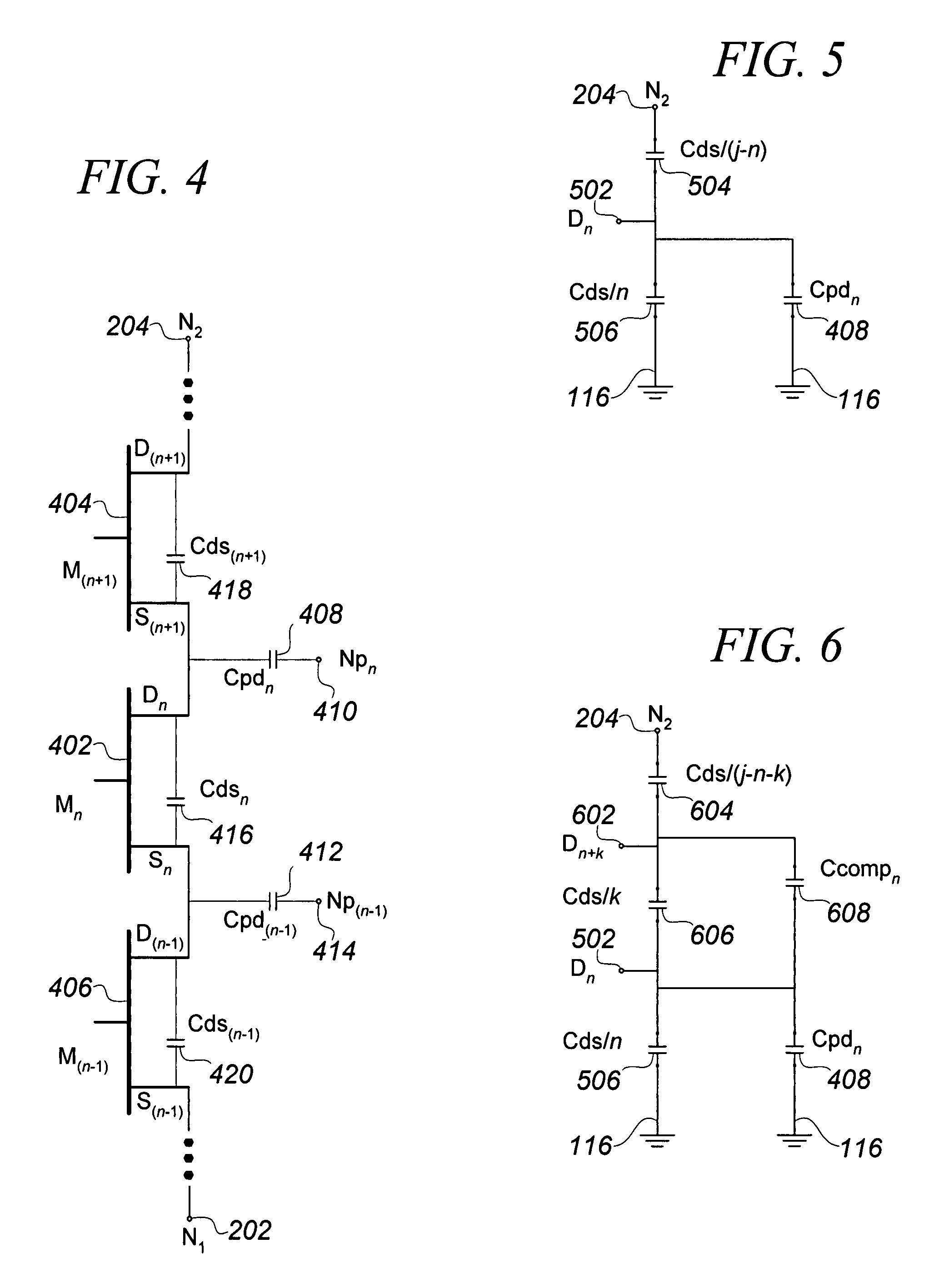Tuning capacitance to enhance FET stack voltage withstand
a technology of capacitance and stack voltage, applied in the field of stacked transistor devices, can solve the problems of insufficient control signals of substantial amplitude, burdensome tradeoffs, and inability to manufacture transistors with higher bvds in the integrated circuit, and achieve the effect of effectively tuning the capacitance of the stack
- Summary
- Abstract
- Description
- Claims
- Application Information
AI Technical Summary
Benefits of technology
Problems solved by technology
Method used
Image
Examples
Embodiment Construction
[0029]The background set forth above describes a typical stacked RF switch, as illustrated in FIG. 2. FIG. 3 illustrates how a switch such as shown in FIG. 2 should divide an applied RF voltage, such as (VS 302-VRef 304) such that equal voltages are imposed on each of the j FETs in the stack. When the switch is off (and presuming VRef is zero), VS 302 is applied to the endnodes 302-304 of the stack. Though each FET is in a high impedance state, the switch conducts somewhat due to the effective drain-source capacitances Cdsx corresponding to each FETx. Because the “off” conduction is almost entirely due to these capacitances, the FET structure itself is not shown, but only the j corresponding effective drain-source capacitances Cds1 306, Cds2 308, Cds3 310, . . . , Cds(j−1) 312 and Cdsj 314. This capacitive divider distributes the impressed voltage VS across each corresponding drain node to produce Vd1 316, Vd2 318, Vd3 320, . . . , Vd(j−2) 322 and Vd(j−1) 324.
[0030]If each Cdsx has ...
PUM
| Property | Measurement | Unit |
|---|---|---|
| drain-source capacitance Cds | aaaaa | aaaaa |
| voltage | aaaaa | aaaaa |
| voltage V2 | aaaaa | aaaaa |
Abstract
Description
Claims
Application Information
 Login to View More
Login to View More - R&D
- Intellectual Property
- Life Sciences
- Materials
- Tech Scout
- Unparalleled Data Quality
- Higher Quality Content
- 60% Fewer Hallucinations
Browse by: Latest US Patents, China's latest patents, Technical Efficacy Thesaurus, Application Domain, Technology Topic, Popular Technical Reports.
© 2025 PatSnap. All rights reserved.Legal|Privacy policy|Modern Slavery Act Transparency Statement|Sitemap|About US| Contact US: help@patsnap.com



